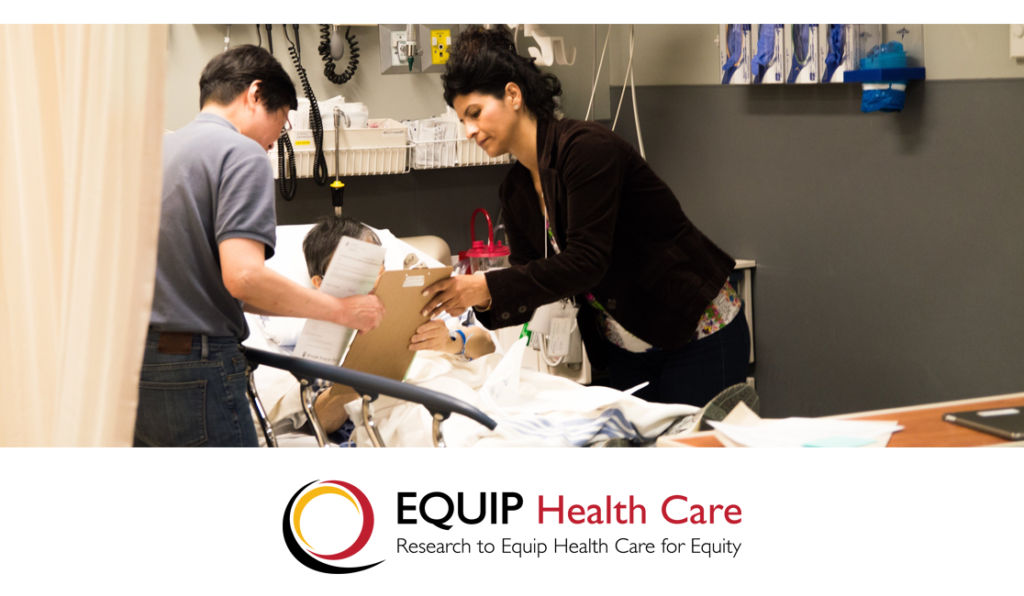EQUIP Emergency: Study Protocol for an Organizational Intervention to Promote Equity in Health Care
Emergency Departments (EDs) have the potential to mitigate health inequities people with complex health conditions, and the real-world application of this will be assessed in a new study, published in protocol form in the BMC Health Services Research Journal. The EQUIP study will examine the impacts of an organizational-level health equity intervention in emergency departments.
Practices of discrimination in the ED contribute to misdiagnoses, under-treatment, and errors, deter timely care, and increase conflict. The EQUIP study will apply a mixed methods process and outcome evaluation of ED provider improvement in the equity of care in emergency departments, particularly for groups known to be at risk for experiencing the negative impacts of health care inequities. These groups include Indigenous people, racialized newcomers, people with mental illnesses, people living in unstable housing or facing homelessness, people experiencing interpersonal violence or using substances, and people involved in sex work.
The study objectives are:
- Engage EDs in a participatory process to enhance capacity for Equity-Oriented Care (EOC)
- Examine the impacts of EOC initiatives on:
- Organizational policies and quality of care
- Patient experiences of care and selected outcomes
- Staff engagement and team effectiveness
- Analyze cost-effectiveness and scale-up potential
The intervention being assessed is a health equity-enhancing framework and includes implementable, measurable interventions, tested, refined and relevant to diverse EDs. Three BC ED’s will be participating in the study: St. Paul’s Hospital, Surrey Memorial Hospital, and the University Hospital of Northern BC.
View the study protocol here.

